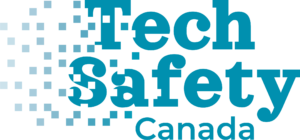WSC’s new Tech Safety Canada project equips shelter and transition house workers with the knowledge and resources they need to support women, children, and gender-diverse people with their experiences of Technology-Facilitated Gender-Based Violence (TFGBV) by scaling up BCSTH’s existing Technology Safety Project. This project also accelerates systemic change through partnerships with telecommunication companies to address tech safety for women. This work will draw on the experience of partners from WESNET Australia and the National Network to End Domestic Violence in the United States.
The Tech Safety Canada project will:
- Create and develop Canadian tech safety resources
- Launch a new Tech Safety Canada website to host these resources
- Train anti-violence workers across Canada about TFGBV
- Work with corporate partners in the technology and communications sector on corporate tech safety practices
What is Technology-Facilitated Gender-Based Violence?
TFGBV refers to the misuse of technology to perpetuate violence, abuse, or harassment against women, children, and gender-diverse people. It can include acts such as threats, inciting gender-based violence online, harassment via digital communication, impersonation, disclosing private information (or threatening to do so), doxing, sextortion, trolling, unauthorized access to information or devices, manipulated images, mobbing (or networked harassment), stalking, and the non-consensual filming and sharing of intimate images.
According to Women’s Shelters Canada data from 2022 (not yet published), more than 95% of domestic violence shelters in Canada served women who had experienced TFGBV. This high level of violence has been corroborated by a BC Society of Transition Houses 2020 survey of anti-violence services, which found that 88% of women had disclosed TFGBV.
This two-year project is made possible by funding from Women and Gender Equality (WAGE) Canada.

